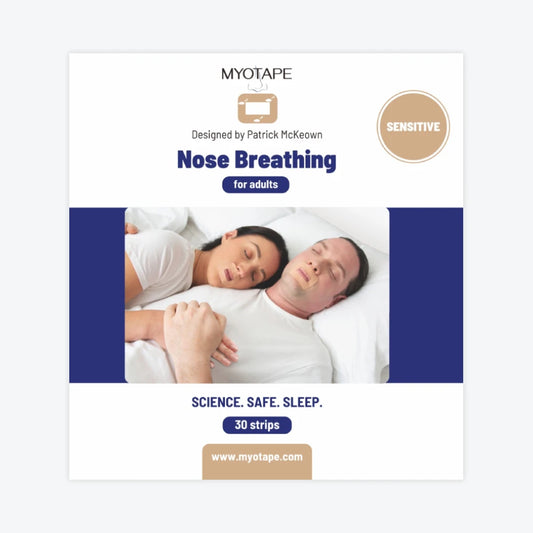Have you ever noticed how much your nose shapes your daily life? The taste of your morning coffee, the comfort of fresh laundry, or the warning of smoke in the kitchen; all of these depend on your nose’s sense of smell.
We often don’t realize just how important it is until something changes: food doesn’t taste the same, familiar scents fade into the background, or you catch yourself feeling a little nose blind to the world around you.
When that happens, it can leave you wondering what to do if you lose your sense of smell, and more importantly, can it be restored? This article will show you how to protect your sense of smell, provide simple ways to improve it, and outline steps to help restore it.
Why People Become “Nose Blind” and Other Common Causes of Smell Loss
Most of us have experienced being “nose blind.” This is when you stop noticing familiar odors. It doesn’t mean your sense of smell is gone; it’s simply your brain tuning out scents it’s exposed to all the time.
But when your sense of smell changes more noticeably, the reasons can vary. Sometimes it’s short-term, other times it’s more lasting.
Short-term causes often include:
- A blocked or stuffy nose during a cold or allergy flare-up. Additionally, temporary loss of taste often accompanies nasal congestion.
- A runny nose that makes it hard for odor molecules to reach the receptors in your nose.
Longer-term or recurring causes may include:
- Sinus infections (acute or chronic).
- Nasal polyps or swelling that blocks airflow.
- Allergies such as hay fever.
- Viral infections, including flu and COVID-19.
- Smoking or long-term exposure to irritants.
- Head injuries or trauma affecting the olfactory nerves.
- Age-related decline, especially after 60.
- Neurological conditions such as Parkinson’s or Alzheimer’s disease.
- Certain medications or treatments that affect the nasal passages.
Interestingly, our sense of smell is also deeply connected to aspects of life we don’t often think about, such as intimacy. Research shows that nasal breathing and olfactory function play a role in human sexuality. A 2018 study found that people with a sharper sense of smell reported greater intimacy. While, a 2023 study found that people often agree on which body odors are attractive, much like they do with faces and voices. This shows that smell is a shared cue in attraction and compatibility.
However, understanding why changes happen is the first step toward protecting and restoring this vital sense.

Can Sense of Smell Be Restored?
Many people who lose their sense of smell wonder if it can be restored. In some cases, yes, especially when the change is linked to a temporary condition, such as congestion from a cold or allergies. Once the nasal passages clear, smell often improves on its own.
If the loss persists for an extended period, the safest course of action is to consult an ENT specialist. They can check for blockages, sinus issues, or other underlying conditions. Doctors may also recommend smell training, a simple practice of regularly sniffing familiar scents to help support recovery.
While every situation is unique, taking action early and seeking medical guidance provides the best chance of improvement.
Ways to Protect and Improve Sense of Smell
Your sense of smell is closely tied to taste, memory, and even emotional wellbeing. The good news is that there are simple, everyday habits that can help you keep it sharp and even improve it over time.
1. Prioritize nose breathing
We mainly smell when breathing through the nose, not the mouth. Nose breathing directs air and odor molecules to the receptors that detect scents, which is why congestion or habitual mouth breathing can dull your sense of smell.
Even during sleep, your sense of smell still works, though it’s less active than when you’re awake. Keeping nasal passages clear and relying on nose breathing at night supports both healthy breathing and a sharper smell.
This is where MyoTape can help. MyoTape is a gentle support worn around the lips that helps encourage natural nose breathing while you sleep.
If you take nasal breathing seriously, you can support your sense of smell, enhance your taste, and improve your sleep quality.
2. Practice smell training
One of the most effective ways to increase sense of smell is through smell training. This involves regularly smelling familiar scents such as citrus, mint, cloves, or floral aromas. Focusing on these scents for a few minutes each day can help your brain strengthen its recognition of odors over time.
3. Maintain good nasal hygiene
Clear nasal passages are essential for a healthy sense of smell. Saline rinses or sprays can gently wash away allergens, dust, and irritants, making it easier for odor molecules to reach the receptors. Maintaining good nasal hygiene is a simple yet powerful way to protect your sense of smell.
4. Eat a nutrient-rich diet
Your body needs the right nutrients to support the cells that process smell and taste. Foods rich in Zinc and vitamin A are especially important for sensory health. A balanced diet with colorful fruits, leafy greens, lean proteins, and whole grains provides the building blocks your senses rely on.
5. Stay hydrated often
A dry nose can make scents seem faint or distorted. Drinking enough water throughout the day keeps the mucous membranes in your nose moist and receptive, allowing you to notice and appreciate aromas more fully.
6. Avoid smoking and irritants
Smoking, vaping, and long-term exposure to strong chemicals can damage the delicate receptors in your nose. Avoiding these irritants will ensure that your sense of smell is intact as you age, while also benefiting your overall health.
7. Protect yourself against infections and allergies
Frequent colds, sinus infections, or untreated allergies can all interfere with smell. Managing seasonal allergies, practicing good hand hygiene, and seeking treatment for persistent sinus issues are practical steps that help preserve your ability to smell and taste clearly.
MyoTape Helps Protect Your Nose and Sense of Smell
Your sense of smell is vital for safety, taste, memory, and daily quality of life. Losing it, even briefly, can dull food, mood, and confidence. With healthy habits like nasal hygiene, balanced nutrition, and smell training, many people are able to repair sense of smell and protect it for the long term.
At the heart of this is nasal breathing. Breathing through the nose supports olfaction, filters the air you breathe, and keeps your airways healthy, both during the day and while you sleep.
If you struggle to breathe through your nose, MyoTape can help you. Designed to gently encourage lip closure at night, MyoTape promotes natural nose breathing, which supports your sense of smell, improves sleep quality, and enhances overall wellbeing.
Check out the MyoTape online shop, and choose from a variety of options designed for everyone, including mouth tape for kids, mouth tape for adults, mouth tape for sensitive skin, and mouth tape for beards.








